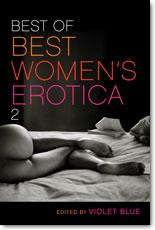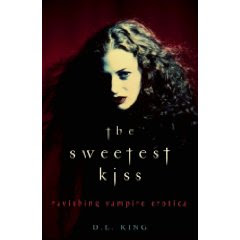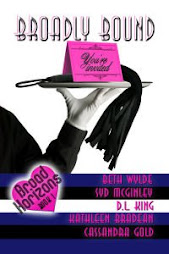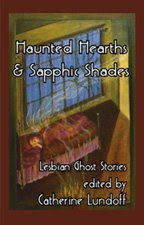At lunch with writer Michael Thomas Ford last weekend, he mentioned that as soon as he typed the last word on his gay romance titles, he sent them off to his publisher. That struck me as terrifying. I couldn't do that. There are some huge differences between Mike and me though, the biggest being that he's a professional writer. He probably emerges from a story with a clean draft. He must edit as he goes. Plus he's probably a better typist than I am.
I have to step away from a story for a while and come back to it. For most writers, this is a good idea. You can never have fresh eyes when reading your work, but the more time you spend away from it, the better the chances are that you'll see what you actually wrote and not what you meant to say. For writers like me who make their words pull double duty with layered meaning, distance is even more important.
As tempting as it is to jump in, polish, and send that story out, my advice is to let it be. Move on to something else. Read a good book. After a couple weeks, if you can spare the time, print it out (I don't know why stories read different on paper than they do on a computer screen, but they do.) and look at it with a critical eye.
My biggest faults are language and redundant sentences. I tend to write the way I talk, which can come off as stilted on the page. So I simplify the language the way I would for a business letter. Not terse, just clear. Fewer words, shorter words. I also have to trust the reader's intelligence, so any sentences that bluntly tell what I've already shown have to be cut.
It's not that I'm good at waiting. Recently, I sent out a terrible copy to beta readers because I craved feedback. Luckily, neither one got to it before I made major changes, so they got the new copy and (hopefully) will get back to me soon with their opinions. There's a lesson in that. Let it be. Let it go. Give it time - unless you're Mike and have the skills to do it right the first time.
Sunday, August 23, 2009
Wednesday, August 19, 2009
In The Beginning
So - you have a great idea for a story. Even if you haven't outlined it (you don't have to), you probably have a sense of your characters and some of the plot in mind (however sketchy that might be, and that's okay too), but where to begin?
The Mad Hatter tells Alice to begin at the beginning, and when you get to the end, stop. On the surface that's sound advice, but what is the beginning? No person (character) springs to life full grown, but unless the story is about how this person came to be who s/he is, then skip the biography.
Other advice you'll often hear is to start in the middle of action. That also seems sensible, but...
Here's starting in the middle of action:
A woman walks to a door, and as she's getting keys out of her purse, a car comes tearing around a corner and there are gunshots. Okay. Who is she, was she hit, and why did someone shoot at her? That's a hook and a half. It presents mysteries, and the reader has to keep turning pages to find the answers. The problem is - Why should the reader care? It's not as if the character has been developed yet. If you're a really good writer, you can evoke a lot with that scene. You can make it horror, noir, maybe even comedy. Instead of character, you'll be setting the tone and scene up front. But very soon, you're going to have to give the reader a reason to care about the woman, which means interrupting the action and going back to character development. I've seen it done well, but I've also lost interest in books that opened like this and then got bogged down in backstory. So be wary of starting with pure action.
In Gone With The Wind, a great deal of the story is how Scarlet deals with the loss of her expected world and adapts to the new one, comparing her survivor nature with others around her (Melanie and Ashley) who can't/don't adapt. The agent of change in that story is the American Civil War. But the story wisely doesn't begin with the war. It gives the reader a little taste of Scarlet's pre-war environment so that the reader understands where she's coming from. Right away, there are rumors of war, and she angrily dismisses them, but soon it's clear that ignoring it won't make it go away. The real action begins with a rider galloping up to the party and breathlessly announcing that the war has begun.
When you think about it, most stories are about how a character handles upheaval in his/her life. So it's fine to start a little before the action. However, if you're going to have that long of a lead in to the action, you better make it worth the reader's time. Gone With the Wind works because Scarlet is such a compelling character that you're willing to follow her around a bit. And you better foreshadow what's coming.
Please don't foreshadow by saying something along the lines of "Little did Scarlet know that the ball at Ashley's plantation would be the end of life as she knew it." Mitchell skillfully handled it by having Scarlet's suitors bring it up when she expects them to be fawning over her. The reader knows it's going to ruin more than an afternoon of pleasant gossip and that she won't be able to ignore the war by resolving to think about it tomorrow. That little taste is enough at that point. And the way Scarlet reacts to it tells us something important about her character, because that's the way she'll continue to react to the war.
Gone With The Wind begins very close in time to a life-changing event for Scarlet. That's where I'd suggest you open your tale. I'm no Mad Hatter, but I say:
Show a little of the world before the action, a lot of how the conflict affects your main character, and when you get to the part where the conflict is resolved and your character has been changed in some way, stop.
The Mad Hatter tells Alice to begin at the beginning, and when you get to the end, stop. On the surface that's sound advice, but what is the beginning? No person (character) springs to life full grown, but unless the story is about how this person came to be who s/he is, then skip the biography.
Other advice you'll often hear is to start in the middle of action. That also seems sensible, but...
Here's starting in the middle of action:
A woman walks to a door, and as she's getting keys out of her purse, a car comes tearing around a corner and there are gunshots. Okay. Who is she, was she hit, and why did someone shoot at her? That's a hook and a half. It presents mysteries, and the reader has to keep turning pages to find the answers. The problem is - Why should the reader care? It's not as if the character has been developed yet. If you're a really good writer, you can evoke a lot with that scene. You can make it horror, noir, maybe even comedy. Instead of character, you'll be setting the tone and scene up front. But very soon, you're going to have to give the reader a reason to care about the woman, which means interrupting the action and going back to character development. I've seen it done well, but I've also lost interest in books that opened like this and then got bogged down in backstory. So be wary of starting with pure action.
In Gone With The Wind, a great deal of the story is how Scarlet deals with the loss of her expected world and adapts to the new one, comparing her survivor nature with others around her (Melanie and Ashley) who can't/don't adapt. The agent of change in that story is the American Civil War. But the story wisely doesn't begin with the war. It gives the reader a little taste of Scarlet's pre-war environment so that the reader understands where she's coming from. Right away, there are rumors of war, and she angrily dismisses them, but soon it's clear that ignoring it won't make it go away. The real action begins with a rider galloping up to the party and breathlessly announcing that the war has begun.
When you think about it, most stories are about how a character handles upheaval in his/her life. So it's fine to start a little before the action. However, if you're going to have that long of a lead in to the action, you better make it worth the reader's time. Gone With the Wind works because Scarlet is such a compelling character that you're willing to follow her around a bit. And you better foreshadow what's coming.
Please don't foreshadow by saying something along the lines of "Little did Scarlet know that the ball at Ashley's plantation would be the end of life as she knew it." Mitchell skillfully handled it by having Scarlet's suitors bring it up when she expects them to be fawning over her. The reader knows it's going to ruin more than an afternoon of pleasant gossip and that she won't be able to ignore the war by resolving to think about it tomorrow. That little taste is enough at that point. And the way Scarlet reacts to it tells us something important about her character, because that's the way she'll continue to react to the war.
Gone With The Wind begins very close in time to a life-changing event for Scarlet. That's where I'd suggest you open your tale. I'm no Mad Hatter, but I say:
Show a little of the world before the action, a lot of how the conflict affects your main character, and when you get to the part where the conflict is resolved and your character has been changed in some way, stop.
Sunday, August 16, 2009
Damn ISP
I can't wait to fire Earthlink as my ISP. I had a long entry ready to go, and as I was posting it, Earthlink crashed - again. Like it always does. Total crap service. The worst part - they know it, and pretend to be surprised every time we call and tell them it's crashed yet again. Worse, they act as if rebooting will fix everything, as if we haven't tried that a bazillion times. Morons.
Anyway, now it's late and I have no energy left to rewrite the post.
Anyway, now it's late and I have no energy left to rewrite the post.
Sunday, August 09, 2009
Back
One of the worst parts about vacation is the work that piles up while you're gone.
One of the best parts is lovely packages awaiting your return. Such as:

My story Words Like Candy Conversation Hearts appears in this anthology. I was flattered to be included, and amazed at the fast turn-around. POD rocks.
I also saw some great reviews of Where the Girls Are (here, and here), and Broadly Bound.
One of the best parts is lovely packages awaiting your return. Such as:

My story Words Like Candy Conversation Hearts appears in this anthology. I was flattered to be included, and amazed at the fast turn-around. POD rocks.
I also saw some great reviews of Where the Girls Are (here, and here), and Broadly Bound.
Subscribe to:
Posts (Atom)















.jpg)









